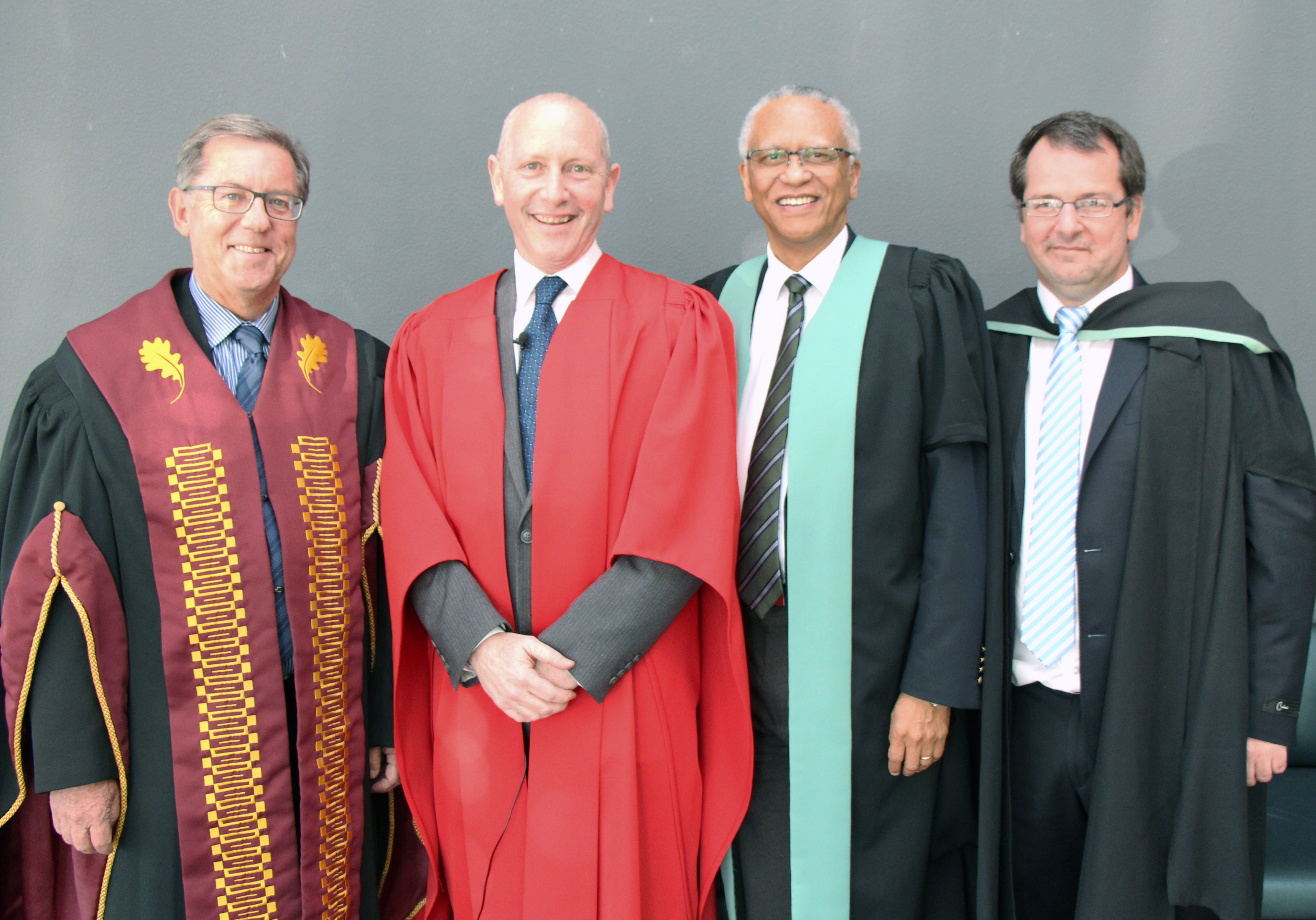Athletes participating at the Paralympics can suffer from illness and injury during competition and therefore prevention strategies are needed to help them perform at their best.
This was one of the viewpoints of Prof Wayne Derman from the Institute of Sport and Exercise Medicine at the Faculty of Medicine and Health Sciences on Thursday (16 November 2017). He delivered his inaugural lecture in the Education Building on the Tygerberg campus.
Speaking about the different illnesses and injuries at Paralympic Summer and Winter Games, Derman said “the longitudinal study of the epidemiology (patterns, causes, and effects of diseases in specific populations) of both injury and illness in Paralympic sport is important, as the findings can assist in the formulation of prevention strategies."
“Illness and injury surveillance remains an important mainstay of athlete care, and forms an integral part of the formulation of prevention programmes."
Derman said data on illnesses and injuries are also useful for team medical staff. 
“Perhaps more importantly, the data allow for the determination of which sports need to be assessed in detail for injury risk."
He pointed out that although there have been many advances in medical care for athletes with impairments, some challenges remain.
“The Paralympic movement poses a number of challenges that may directly overlap with medical support. These areas include doping and intentional misrepresentation (cheating), boosting (purposeful induction of an increase in blood pressure through a noxious stimulus in an athlete with a high spinal cord injury), Paralympic classification methods, and access (or lack thereof) to advanced medical support, sport technology and other resources."
Derman said the Paralympics must raise awareness and provide a global perspective on the unique and remarkable capabilities of individuals with impairments.
“Athletes with disabilities are just as dedicated as their able-bodied counterparts, and train and compete equally hard."
Derman said the International Paralympic Committee, athletes, coaches, administrators and medical staff throughout the movement must be challenged to ensure that all people with disabilities – not just elite athletes, and not just those in wealthier countries – are given the opportunity to participate fully in physical activity and sport.
He did mention, however, that Paralympic sport has done a great deal to improve perceptions of people with disabilities and what they can achieve.
- Main photo: A wheelchair athlete at the Paralympics. Credit: Wikimedia Commons
- Photo 1: Proff Eugene Cloete, Vice-Rector: Research, Innovation and Postgraduate Studies, Wayne Derman, Jimmy Volmink, Dean of the Faculty of Medicine and Health Sciences, and Jacques du Toit, Head of Orthopaedic Surgery, at the inaugural lecture.
- Photographer: Wilma Stassen

